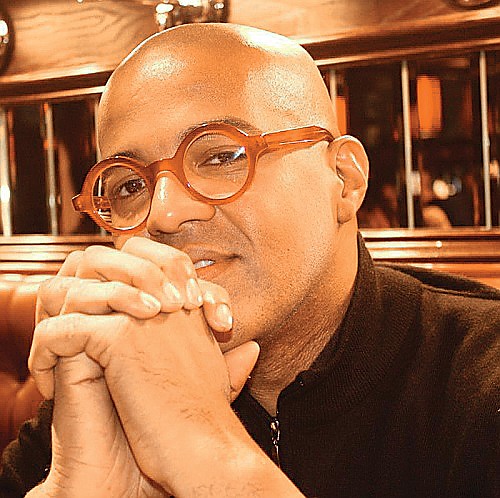Healing a divided America, by Dr. Keith Magee
1/28/2021, 6 p.m.
A white man strolled into an office, settled down in a leather chair and casually put his dirty boots on the desk in front of him.
I saw this and I wept. For this was not his office, but that of Nancy Pelosi, the speaker of the U.S. House of Representatives. She had been evacuated by armed police for her own protection, and the man, Richard Barnett, was part of a pro-Trump mob of domestic terrorists who had smashed their way into the U.S. Capitol building.
It had been a long and traumatic day at the end of a long and traumatic four years, and this is what reduced me to tears – a photograph of a white man with his feet up.
How very easily he and his fellow extremists had strolled, virtually unchallenged by police, through the halls of power. How comfortably he committed the crime of sedition, disgracing our country while the whole world watched in amazement. How warmly he was praised for his thuggery by a president who called him “a very special person” and a “patriot.”
I wept for our national humiliation and for the violation of our precious, fragile democracy. I wept for all the Black protesters who just six months previously had knelt on the hard, hot streets outside that very building to peacefully proclaim that their lives matter and who had been beaten, pepper-sprayed and arrested for their pains.
Many of the rioters who stormed the Capitol in the dying days of Donald Trump’s nightmarish presidency had tattoos linking them to white supremacist groups with their roots in some of the darkest — or perhaps whitest — chapters of U.S. history.
Racism and its dreadful consequences are deeply ingrained our past and have never been fully resolved. Our present is tainted by the ongoing devaluing of those with Black and Brown bodies — we can still hear their blood crying from the ground.
I truly believe that the struggle for justice for all will one day succeed, but not before we, as a nation, own the sin of racism. Its horrors cannot be negated. They must be examined honestly and repented, and the pernicious myth of race dismantled for good.
But rather than seek retaliation against those who are taken in by racist lies and madcap conspiracy theories, we should reach out to them. We should strive for reconciliation, for with God’s blessings of forgiveness and grace, even the worst of us can be turned away from evil in repentance and redirected toward good.
And if it proves beyond us to change these people’s minds, then we must hope to teach their children the true values of our democracy. We must show them how to also love those who don’t look or sound like their parents, so that this hatred does not poison the hearts of any more generations of Americans.
Sadly, the divisions we face today are open wounds that go well beyond a few extremist groups. They permeate through- out our society. President Biden is now fighting to mend the soul of America. He cannot do it alone or quickly — a cure will take decades — but he can lead us all in bold, strategic steps toward healing.
Wounds must be allowed to breathe: First, we must talk openly to one another about our discontent and our anger, our fears and our hopes. And we must listen. This will require love, civility and courage, but we should not rest until we find common ground. We may be surprised by how much unites us. We all have a soul. We all dream of a better future. We are all American patriots. We all long for justice. We are all God’s children.
If I could, I would like to sit down in a brave space somewhere with that man who put his feet up in Speaker Pelosi’s office. I would ask him what he was hoping to achieve that day, what he was so angry about and why. I would try to really listen to his answers, however abhorrent I found his beliefs.
I suspect he would tell me that he thought he was fighting to save democracy because he saw it as the very soul of America, the source of all hope. Now that, surely, is one thing that we would be able to agree on. And perhaps that would be a start.
The writer is chair and professor of social justice at Newcastle University and senior fellow in culture and justice at the University College London.







